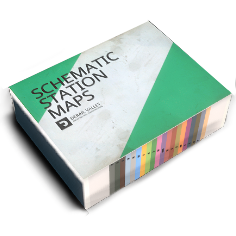Body Damage/ja: Difference between revisions
No edit summary |
No edit summary |
||
| Line 1: | Line 1: | ||
<languages /> | <languages /> | ||
{{pll|Rail Vehicle Types|車両}}の車体へ{{pll|Damage Overview|損傷}}の原因の最も主たるものは、衝突です。{{pll|Railway Terminology|バッファ}}または他の物体に速すぎる{{pll|Speed Limit Signs|速度}} | {{pll|Rail Vehicle Types|車両}}の車体へ{{pll|Damage Overview|損傷}}の原因の最も主たるものは、衝突です。{{pll|Railway Terminology|バッファ}}または他の物体に速すぎる{{pll|Speed Limit Signs|速度}}で衝突すると、損傷が発生します。 | ||
<div lang="en" dir="ltr" class="mw-content-ltr"> | <div lang="en" dir="ltr" class="mw-content-ltr"> | ||
Revision as of 00:31, 22 April 2025
車両の車体へ損傷の原因の最も主たるものは、衝突です。バッファまたは他の物体に速すぎる速度で衝突すると、損傷が発生します。
Most common situations in which collision damage occurs is due to derailing, distracted shunting, badly set up switches and wheelslide. Body damage can also be caused by various powertrain failures that cause parts to fly apart, as well as fire and even explosions.
Damage to a vehicle's body may result in failure of various accessories, such as windows, lights and compressors. It doesn't otherwise affect the moving capability of a vehicle, however.
To ensure safe contact between vehicles, it is recommended to not come in contact at more than 5 km/h. To help anticipate contact better, there are proximity sensor gadgets.
Body damage of a vehicle is displayed on its ID plate.
Damaged vehicle bodies can be serviced.
Cars and cargo can be damaged from collisions too.
Body damage can be inflicted manually in sandbox mode, using the comms radio damage mode.
